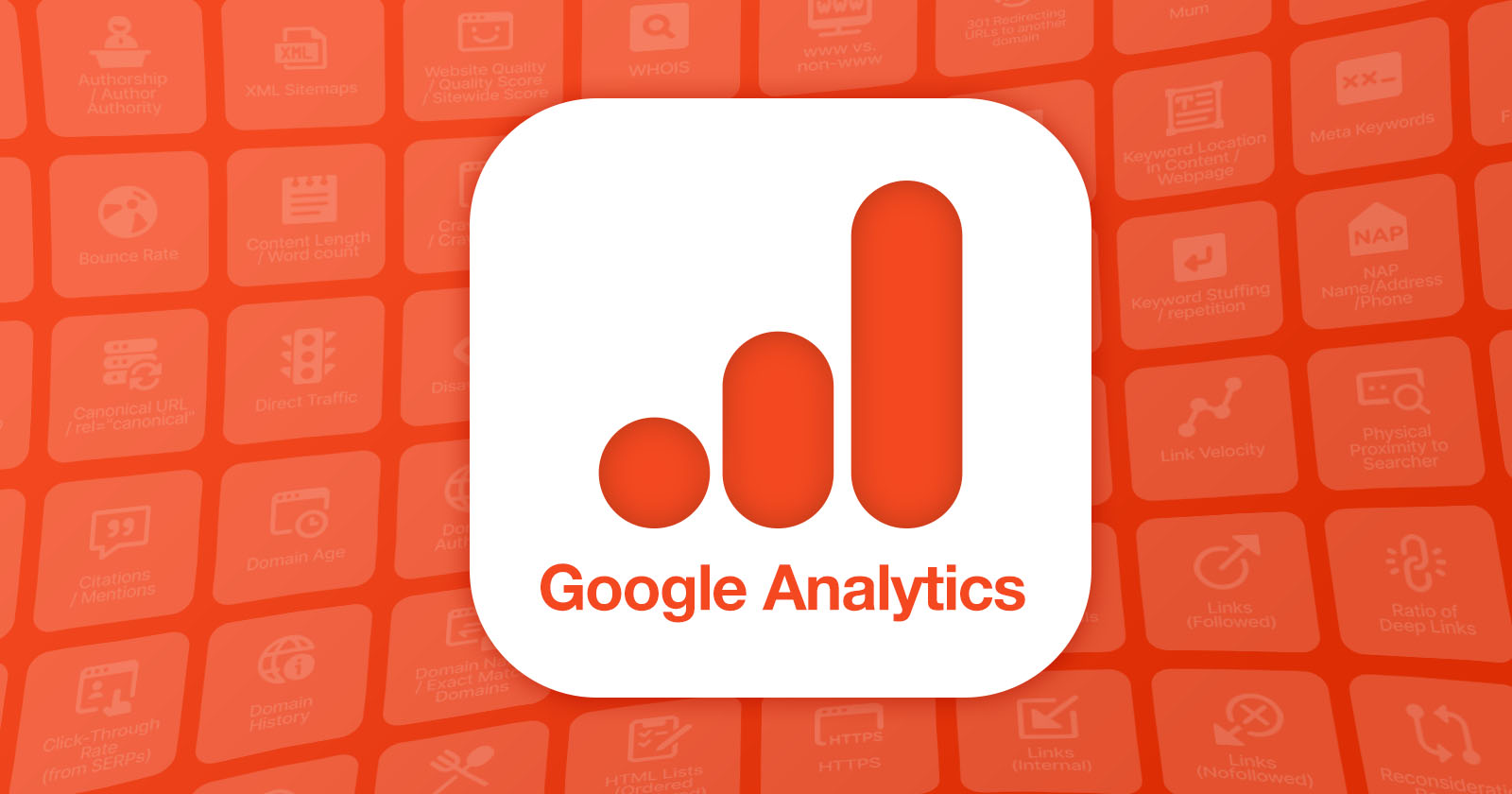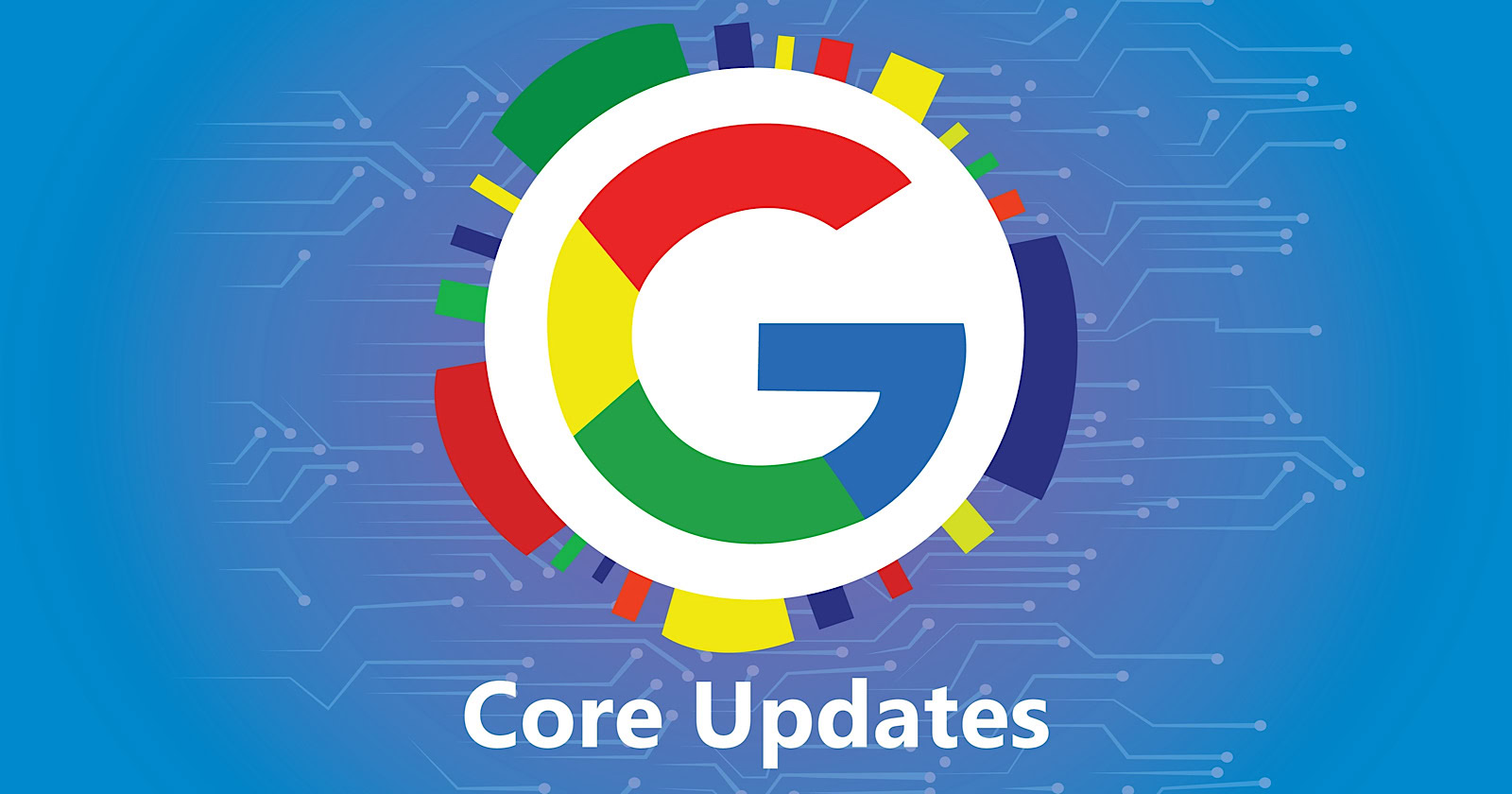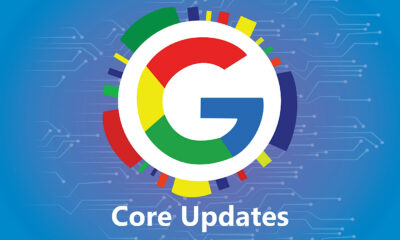SEO
Is Using Google Analytics A Search Ranking Factor?

Google Analytics (GA) is a powerful tool that lets website owners learn how users interact with their webpages.
The amount of information we can get from Google Analytics is so in-depth that a theory has been circulating, for over a decade, that GA data is a ranking factor.
Is Google Analytics really powerful enough to influence Google search results?
Let’s take a closer look.
[Recommended Read:] Google Ranking Factors: Fact or Fiction
The Claim: Google Analytics As A Ranking Factor
In Google’s How Search Works documentation, we can see that a webpage’s relevance is one of the many factors used to rank webpages.
The most basic relevancy signal is that the content contains the same words as the search query.
Additional information about how Google determines a page’s relevance is provided.
Beyond simple keyword matching, Google says, “We also use aggregated and anonymized interaction data to assess whether search results are relevant to queries. We transform that data into signals that help our machine-learned systems better estimate relevance.”
 Screenshot from Google’s How Search Works, June 2022
Screenshot from Google’s How Search Works, June 2022What is “interaction data,” and where does Google get it?
Some marketers hypothesize that these factors include metrics such as time on page, organic click-through rate, bounce rate, total direct traffic, percentage of repeat visitors, etc.
That makes sense because those are the metrics marketers are familiar with and understand to represent the interactive data Google may be looking for.
Marketers may also notice a correlation between the metrics improving as their position in the SERP improves.
Is it possible that we are somehow improving Google’s understanding of our website’s user experience using Google Analytics?
Like some sort of SEO bat signal?
Can we directly influence rankings by giving Google more “interaction data” to work with?
[Ebook:] Download The Complete Guide To Google Ranking Factors
The Evidence Against Google Analytics As A Ranking Factor
While we don’t have direct access to Google’s algorithm, evidence shows Google Analytics as a ranking factor is not a plausible theory.
First, Google representatives have been clear and consistent in saying that they don’t use Google Analytics data as a ranking factor.
As recently as March 16, 2022, John Mu has responded to tweets about Google Analytics impacting rank.
 Screenshot from Twitter, June 2022
Screenshot from Twitter, June 2022In jest, a marketer suggested if Google wanted people to use GA4, they could just say it would improve ranking.
John Mu replied, “That’s not going to happen.”
Google seems to continuously be batting down the idea that its analytics services influence ranking in any way.
Back in 2010, when we were tweeting to snag the top spot in results for a few moments, Matt Cutts said, “Google Analytics is not used in search quality in any way for our rankings.”
 “Is Google Analytics data a factor in a page’s ranking?” Google Search Central, June 2022
“Is Google Analytics data a factor in a page’s ranking?” Google Search Central, June 2022And you don’t have to take Google’s word for it.
Here are three websites ranking in the top 10 for highly competitive keywords that do not have the Google Analytics tag on their site.
1. Ahrefs, an SEO tool, famously does not use Google Analytics.
 Screenshot by author, June 2022
Screenshot by author, June 2022Tim Soulo, CMO at Ahrefs, tweeted in December 2019, “Every time I tell fellow marketers that we don’t have Google Analytics at ahrefs.com, they react with ‘NO WAY!’”
 Screenshot from Twitter, June 2022
Screenshot from Twitter, June 2022And the Ahrefs domain ranks in the top 10 positions for over 12,000 non-branded keywords.
 Screenshot from Ahrefs.com, June 2022
Screenshot from Ahrefs.com, June 20222. Another famous example is Wikipedia.
Wikipedia articles dominate Google search results, ranking very well for definition-type searches such as computer, dog, and even the search query “Google.”
And it ranks for all this with no Google Analytics code on the site.
 Screenshot by author, June 2022
Screenshot by author, June 20223. One more example is Ethereum.
Ethereum is ranking in the top 10 for [nft]. NFT is an enterprise-level keyword with over one million monthly searches in the United States alone.
Ethereum’s website does not have Google Analytics installed.
 Screenshot by author, June 2022
Screenshot by author, June 2022[Discover:] More Google Ranking Factor Insights
Our Verdict: Google Analytics Is Not A Ranking Factor

Google Analytics is a powerful tool to help us understand how people find our website and what they do once there.
And when we make adjustments to our website, by making it easier to navigate or improving the content, we can see GA metrics improve.
However, the GA code on your site does not send up an SEO bat signal.
The GA code is not a signal to Google, and it does not make it easier for Google to assess relevance (whether your webpage fulfills the user’s search query.)
The “bat signal” is for you.
Google Analytics is not a ranking factor, but it can help you understand whether you’re heading in the right or wrong direction.
Featured Image: Paulo Bobita/Search Engine Journal
SEO
Google March 2024 Core Update Officially Completed A Week Ago

Google has officially completed its March 2024 Core Update, ending over a month of ranking volatility across the web.
However, Google didn’t confirm the rollout’s conclusion on its data anomaly page until April 26—a whole week after the update was completed on April 19.
Many in the SEO community had been speculating for days about whether the turbulent update had wrapped up.
The delayed transparency exemplifies Google’s communication issues with publishers and the need for clarity during core updates
Google March 2024 Core Update Timeline & Status
First announced on March 5, the core algorithm update is complete as of April 19. It took 45 days to complete.
Unlike more routine core refreshes, Google warned this one was more complex.
Google’s documentation reads:
“As this is a complex update, the rollout may take up to a month. It’s likely there will be more fluctuations in rankings than with a regular core update, as different systems get fully updated and reinforce each other.”
The aftershocks were tangible, with some websites reporting losses of over 60% of their organic search traffic, according to data from industry observers.
The ripple effects also led to the deindexing of hundreds of sites that were allegedly violating Google’s guidelines.
Addressing Manipulation Attempts
In its official guidance, Google highlighted the criteria it looks for when targeting link spam and manipulation attempts:
- Creating “low-value content” purely to garner manipulative links and inflate rankings.
- Links intended to boost sites’ rankings artificially, including manipulative outgoing links.
- The “repurposing” of expired domains with radically different content to game search visibility.
The updated guidelines warn:
“Any links that are intended to manipulate rankings in Google Search results may be considered link spam. This includes any behavior that manipulates links to your site or outgoing links from your site.”
John Mueller, a Search Advocate at Google, responded to the turbulence by advising publishers not to make rash changes while the core update was ongoing.
However, he suggested sites could proactively fix issues like unnatural paid links.
“If you have noticed things that are worth improving on your site, I’d go ahead and get things done. The idea is not to make changes just for search engines, right? Your users will be happy if you can make things better even if search engines haven’t updated their view of your site yet.”
Emphasizing Quality Over Links
The core update made notable changes to how Google ranks websites.
Most significantly, Google reduced the importance of links in determining a website’s ranking.
In contrast to the description of links as “an important factor in determining relevancy,” Google’s updated spam policies stripped away the “important” designation, simply calling links “a factor.”
This change aligns with Google’s Gary Illyes’ statements that links aren’t among the top three most influential ranking signals.
Instead, Google is giving more weight to quality, credibility, and substantive content.
Consequently, long-running campaigns favoring low-quality link acquisition and keyword optimizations have been demoted.
With the update complete, SEOs and publishers are left to audit their strategies and websites to ensure alignment with Google’s new perspective on ranking.
Core Update Feedback
Google has opened a ranking feedback form related to this core update.
You can use this form until May 31 to provide feedback to Google’s Search team about any issues noticed after the core update.
While the feedback provided won’t be used to make changes for specific queries or websites, Google says it may help inform general improvements to its search ranking systems for future updates.
Google also updated its help documentation on “Debugging drops in Google Search traffic” to help people understand ranking changes after a core update.
Featured Image: Rohit-Tripathi/Shutterstock
FAQ
After the update, what steps should websites take to align with Google’s new ranking criteria?
After Google’s March 2024 Core Update, websites should:
- Improve the quality, trustworthiness, and depth of their website content.
- Stop heavily focusing on getting as many links as possible and prioritize relevant, high-quality links instead.
- Fix any shady or spam-like SEO tactics on their sites.
- Carefully review their SEO strategies to ensure they follow Google’s new guidelines.
SEO
Google Declares It The “Gemini Era” As Revenue Grows 15%

Alphabet Inc., Google’s parent company, announced its first quarter 2024 financial results today.
While Google reported double-digit growth in key revenue areas, the focus was on its AI developments, dubbed the “Gemini era” by CEO Sundar Pichai.
The Numbers: 15% Revenue Growth, Operating Margins Expand
Alphabet reported Q1 revenues of $80.5 billion, a 15% increase year-over-year, exceeding Wall Street’s projections.
Net income was $23.7 billion, with diluted earnings per share of $1.89. Operating margins expanded to 32%, up from 25% in the prior year.
Ruth Porat, Alphabet’s President and CFO, stated:
“Our strong financial results reflect revenue strength across the company and ongoing efforts to durably reengineer our cost base.”
Google’s core advertising units, such as Search and YouTube, drove growth. Google advertising revenues hit $61.7 billion for the quarter.
The Cloud division also maintained momentum, with revenues of $9.6 billion, up 28% year-over-year.
Pichai highlighted that YouTube and Cloud are expected to exit 2024 at a combined $100 billion annual revenue run rate.
Generative AI Integration in Search
Google experimented with AI-powered features in Search Labs before recently introducing AI overviews into the main search results page.
Regarding the gradual rollout, Pichai states:
“We are being measured in how we do this, focusing on areas where gen AI can improve the Search experience, while also prioritizing traffic to websites and merchants.”
Pichai reports that Google’s generative AI features have answered over a billion queries already:
“We’ve already served billions of queries with our generative AI features. It’s enabling people to access new information, to ask questions in new ways, and to ask more complex questions.”
Google reports increased Search usage and user satisfaction among those interacting with the new AI overview results.
The company also highlighted its “Circle to Search” feature on Android, which allows users to circle objects on their screen or in videos to get instant AI-powered answers via Google Lens.
Reorganizing For The “Gemini Era”
As part of the AI roadmap, Alphabet is consolidating all teams building AI models under the Google DeepMind umbrella.
Pichai revealed that, through hardware and software improvements, the company has reduced machine costs associated with its generative AI search results by 80% over the past year.
He states:
“Our data centers are some of the most high-performing, secure, reliable and efficient in the world. We’ve developed new AI models and algorithms that are more than one hundred times more efficient than they were 18 months ago.
How Will Google Make Money With AI?
Alphabet sees opportunities to monetize AI through its advertising products, Cloud offerings, and subscription services.
Google is integrating Gemini into ad products like Performance Max. The company’s Cloud division is bringing “the best of Google AI” to enterprise customers worldwide.
Google One, the company’s subscription service, surpassed 100 million paid subscribers in Q1 and introduced a new premium plan featuring advanced generative AI capabilities powered by Gemini models.
Future Outlook
Pichai outlined six key advantages positioning Alphabet to lead the “next wave of AI innovation”:
- Research leadership in AI breakthroughs like the multimodal Gemini model
- Robust AI infrastructure and custom TPU chips
- Integrating generative AI into Search to enhance the user experience
- A global product footprint reaching billions
- Streamlined teams and improved execution velocity
- Multiple revenue streams to monetize AI through advertising and cloud
With upcoming events like Google I/O and Google Marketing Live, the company is expected to share further updates on its AI initiatives and product roadmap.
Featured Image: Sergei Elagin/Shutterstock
SEO
brightonSEO Live Blog

Hello everyone. It’s April again, so I’m back in Brighton for another two days of Being the introvert I am, my idea of fun isn’t hanging around our booth all day explaining we’ve run out of t-shirts (seriously, you need to be fast if you want swag!). So I decided to do something useful and live-blog the event instead.
Follow below for talk takeaways and (very) mildly humorous commentary. sun, sea, and SEO!
-
SEARCHENGINES7 days ago
Daily Search Forum Recap: April 19, 2024
-

 WORDPRESS6 days ago
WORDPRESS6 days ago13 Best HubSpot Alternatives for 2024 (Free + Paid)
-

 WORDPRESS7 days ago
WORDPRESS7 days ago7 Best WooCommerce Points and Rewards Plugins (Free & Paid)
-

 MARKETING6 days ago
MARKETING6 days agoBattling for Attention in the 2024 Election Year Media Frenzy
-

 MARKETING6 days ago
MARKETING6 days agoAdvertising in local markets: A playbook for success
-

 SEO7 days ago
SEO7 days agoGoogle Answers Whether Having Two Sites Affects Rankings
-

 SEARCHENGINES6 days ago
SEARCHENGINES6 days agoGoogle Core Update Flux, AdSense Ad Intent, California Link Tax & More
-

 AFFILIATE MARKETING6 days ago
AFFILIATE MARKETING6 days agoGrab Microsoft Project Professional 2021 for $20 During This Flash Sale


![Is Using Google Analytics A Search Ranking Factor? Ranking Factors: Fact Or Fiction? Let’s Bust Some Myths! [Ebook]](https://articles.entireweb.com/wp-content/uploads/2022/08/Fact-Or-Fiction-Lets-Bust-Some-Myths-Ebook.jpg)


![The Current State of Google’s Search Generative Experience [What It Means for SEO in 2024] person typing on laptop with](https://articles.entireweb.com/wp-content/uploads/2024/04/The-Current-State-of-Googles-Search-Generative-Experience-What-It.webp-400x240.webp)
![The Current State of Google’s Search Generative Experience [What It Means for SEO in 2024] person typing on laptop with](https://articles.entireweb.com/wp-content/uploads/2024/04/The-Current-State-of-Googles-Search-Generative-Experience-What-It.webp-80x80.webp)








You must be logged in to post a comment Login